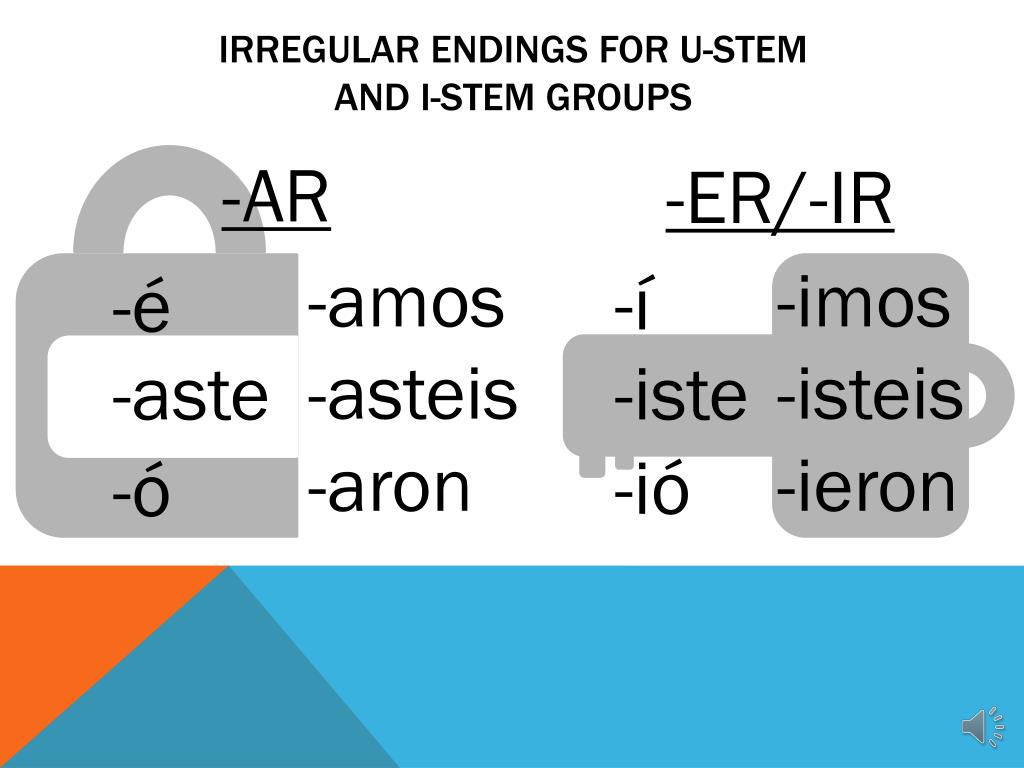
In French, the preterite is known as le passé simple (the simple past). The perfect in Latin also functions in other circumstances as a present perfect.ĭūxī can be translated as (preterite) "I led", "I did lead", or (in the present perfect) "I have led."Ī pronoun subject is often omitted, and usually used for emphasis.

If the past action was not completed, one would use the imperfect. In Latin, the perfect tense most commonly functions as the preterite, and refers to an action completed in the past. The word derives from the Latin praeteritum (the perfective participle of praetereo), meaning "passed by" or "past." Preterite may be denoted by the glossing abbreviation PRET or PRT. The case of German is similar: the Präteritum is the simple (non-compound) past tense, which does not always imply perfective aspect, and is anyway often replaced by the Perfekt (compound past) even in perfective past meanings. In English it can be used to refer to the simple past verb form, which sometimes (but not always) expresses perfective aspect. When the term "preterite" is used in relation to specific languages, it may not correspond precisely to this definition. In grammars of particular languages the preterite is sometimes called the past historic, or (particularly in the Greek grammatical tradition) the aorist. In general, it combines the perfective aspect (event viewed as a single whole it is not to be confused with the similarly named perfect) with the past tense and may thus also be termed the perfective past. The preterite or preterit ( / ˈ p r ɛ t ər ɪ t/ abbreviated PRET or PRT) is a grammatical tense or verb form serving to denote events that took place or were completed in the past in some languages, such as Spanish, French, and English, it is equivalent to the simple past tense.

For the eschatological interpretation, see Preterism. This article is about the grammatical term.


 0 kommentar(er)
0 kommentar(er)
